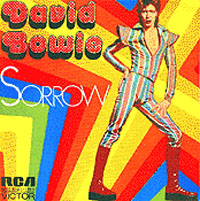
"Seasons in the Sun" is an English-language adaptation of the 1961 Belgian song "Le Moribond" by singer-songwriter Jacques Brel with lyrics rewritten in 1963 by American singer-poet Rod McKuen portraying a dying man's farewell to his loved ones. It became a worldwide hit in 1974 for Canadian singer Terry Jacks and became a Christmas number one in the UK in 1999 for Westlife.

"Me and Bobby McGee" is a song written by American singer-songwriter Kris Kristofferson and originally performed by Roger Miller. Kristofferson and Miller are distant cousins in the Chenoweth family tree surname. Fred Foster shares the writing credit, as Kristofferson wrote the song based on a suggestion from Foster. A posthumously released version by Janis Joplin topped the U.S. singles chart in 1971, making the song the second posthumously released No. 1 single in U.S. chart history after "(Sittin' On) The Dock of the Bay" by Otis Redding. Gordon Lightfoot released a version that reached number 1 on the Canadian country charts in 1970. Jerry Lee Lewis released a version that was number 1 on the country charts in December 1971/January 1972 as the "B" side of "Would You Take Another Chance On Me." Billboard ranked Joplin's version as the No. 11 song for 1971.

"Rebel Rebel" is a song by the English singer-songwriter David Bowie. It was released in the UK in February 1974 by RCA Records as the lead single from the album Diamond Dogs. Written and produced by Bowie, the song is based around a distinctive guitar riff reminiscent of the Rolling Stones. Cited as his most-covered track, "Rebel Rebel" has been described as Bowie's farewell to the glam rock movement that he had helped initiate, as well as being a proto-punk track. Two versions of the song were recorded: the well-known UK single release and the shorter US single release, which featured added background vocals, extra percussion and a new arrangement.
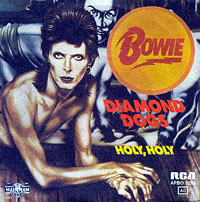
"Diamond Dogs" is a 1974 single by English singer-songwriter David Bowie, the title track of the album of the same name.

"Dancing in the Street" is a song written by Marvin Gaye, William "Mickey" Stevenson and Ivy Jo Hunter. It first became popular in 1964 when recorded by Martha and the Vandellas whose version reached No. 2 on the Billboard Hot 100 chart and peaked at No. 4 in the UK Singles Chart. It is one of Motown's signature songs and is the group's premier signature song. A 1966 cover by the Mamas & the Papas was a minor hit on the Hot 100 reaching No. 73. In 1982, the rock group Van Halen took their cover of "Dancing in the Street" to No. 38 on the Hot 100 chart and No. 15 in Canada on the RPM chart. A 1985 duet cover by David Bowie and Mick Jagger charted at No. 1 in the UK and reached No. 7 in the US. The song has been covered by many other artists, including The Kinks, Tages, Black Oak Arkansas, Grateful Dead, Little Richard, Myra and Karen Carpenter.
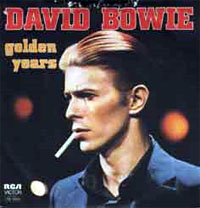
"Golden Years" is a song by the English musician David Bowie, released by RCA Records on 21 November 1975 as the lead single from his tenth studio album Station to Station (1976). Partially written before Bowie began shooting for the film The Man Who Fell to Earth (1976), the song was mostly compiled in the studio and was the first track completed for the album. Co-produced by Bowie and Harry Maslin, recording took place at Cherokee Studios in Los Angeles during September 1975. Due to Bowie's heavy cocaine use, he later recalled remembering almost nothing of Station to Station's production.

"Fame" is a song recorded by the English singer-songwriter David Bowie. It was released on his 1975 album Young Americans and was later issued as the album's second single by RCA Records in June 1975. Written by Bowie, Carlos Alomar and John Lennon, it was recorded at Electric Lady Studios in New York City in January 1975. It is a funk rock song that represents Bowie's dissatisfaction with the troubles of fame and stardom.
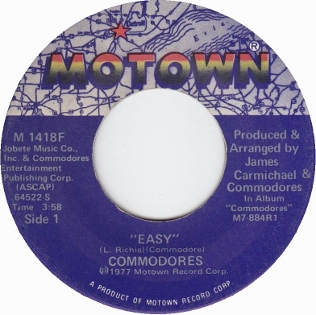
"Easy" is a song by American band Commodores from their fifth studio album, Commodores, released on the Motown label. Group member Lionel Richie wrote "Easy" with the intention of it becoming another crossover hit for the group given the success of a previous single, "Just to Be Close to You", which spent two weeks at number one on the US Billboard Hot Soul Singles chart and peaked at number seven on the Billboard Hot 100 in 1977.

"Rock 'n' Roll Suicide" is a song by the English singer-songwriter David Bowie, originally released as the closing track on the album The Rise and Fall of Ziggy Stardust and the Spiders from Mars on 16 June 1972. Co-produced by Ken Scott, Bowie recorded it with his backing band the Spiders from Mars – comprising Mick Ronson, Trevor Bolder and Mick Woodmansey. It detailed Ziggy's final collapse like an old, washed-up rock star and, as such, was also the closing number of the Ziggy Stardust live show. In April 1974 RCA issued it as a single.

"Knock on Wood" is a 1966 hit song written by Eddie Floyd and Steve Cropper and originally performed by Floyd. The song has become covered by later artists, most notably Amii Stewart in 1979. Stewart's disco version was the most successful on weekly music charts.
"Tonight" is a song written by David Bowie and Iggy Pop for the latter's second solo studio album, Lust for Life (1977). The song was later made into the title-track for Bowie's own album Tonight (1984).

"This Is Not America" is a song by English singer David Bowie and American jazz fusion band Pat Metheny Group, taken from the soundtrack to the 1985 film The Falcon and the Snowman. It was released as a single in February 1985, reaching number 14 in the United Kingdom and number 32 in the United States.

"Amsterdam" is a song by Jacques Brel. It combines a powerful melancholic crescendo with a rich poetic account of the exploits of sailors on shore leave in Amsterdam. Musically, it takes its base melody line from the melody of the English folk song Greensleeves.
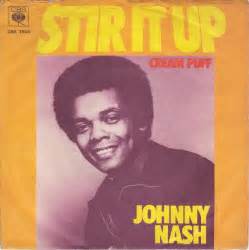
"Stir It Up" is a song composed by Bob Marley in 1967 and first recorded by the group Bob Marley and the Wailers that year and issued as a single. It was later covered by American singer Johnny Nash on his 1972 album I Can See Clearly Now. The following year, Marley and the Wailers re-recorded the song for their album Catch a Fire.

Rare is a compilation album by the English musician David Bowie, released by RCA Records in December 1982. The artist's relations with the company were at a low – Bowie had recorded his last music for RCA Records with the Baal EP, and had been annoyed by the release of a five-year-old duet with Bing Crosby as a single without his consultation. Bowie informed RCA he was unhappy with the Rare compilation, and would sign with EMI Records for his next album. All tracks on Rare were being issued for the first time on LP and cassette.
"Love Hurts" is a song written and composed by the American songwriter Boudleaux Bryant. First recorded by the Everly Brothers in July 1960, the song is most well known from the 1974 international hit version by Scottish hard rock band Nazareth and 1975 Top 5 hit in the UK by English singer Jim Capaldi.
"When You Walk in the Room" is a song written and recorded by Jackie DeShannon. It was initially released as a single on November 23, 1963, as the B-side to "Till You Say You'll Be Mine". It was re-released as an A-side in September 1964, and later included on the album Breakin' It Up on the Beatles Tour. The single charted on the US Billboard Hot 100, peaking at number 99.

"Der Kommissar" is a song recorded by Austrian artist Falco in 1981. The song was written by Robert Ponger and Falco. It reached the top of the charts in many European countries. The cover version as an English translation by the group After the Fire in 1982 had greater success in other countries.

"Come and Get Your Love" is a song by American rock band Redbone. The song was originally released as a promo track under the name "Hail" and was later featured on their fifth album, Wovoka (1973), under its current name. The song was released as the album's first single the following year. Written and produced by band members Pat and Lolly Vegas, it is one of the band's most successful singles. It made them the first Native American band to reach the top five on the Billboard Hot 100, reaching number five. The song later appeared on many "greatest hits" albums released by the band, as well as on numerous compilation albums of the 1970s. A cutout style-animated music video was released in 2020.
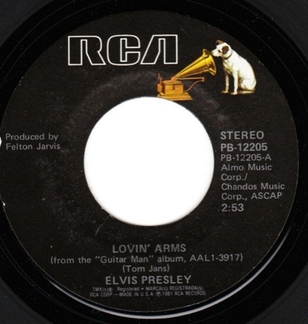
"Loving Arms" is a song written by Tom Jans and first recorded as a duet by Kris Kristofferson and Rita Coolidge for their 1973 album Full Moon.

